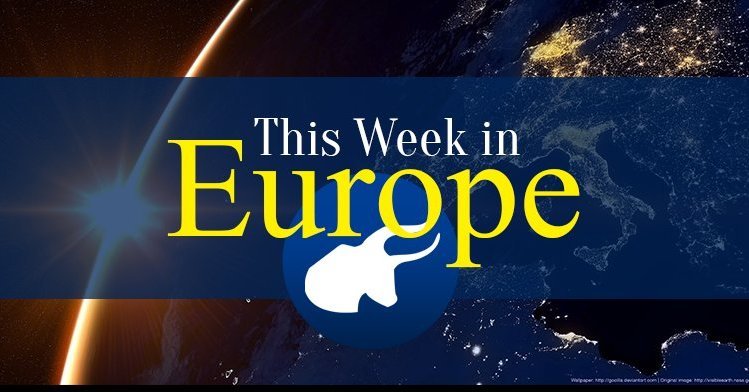Čaputová wins Slovakia’s presidential elections
Zuzana Čaputová, the candidate of the liberal Progressive Slovakia party, is Slovakia’s first female President after winning 58% of the vote. Čaputová had faced off against socialist Maroš Šefčovič, who scored nearly 20%, in the second round. A lawyer by trade, Čaputová is known for her anti-corruption stances and legal fights, including one against businessman Marian Kočner, who was charged earlier this month for ordering the murder of investigative journalist Jan Kuciak. Čaputová has backed more EU integration in foreign and economic issues but has fought back against the measure of refugee relocation. Progressive Slovakia will now be able to rely on the campaigning support of the country’s President-elect.
UK Parliament again votes down the Brexit agreement
After presenting the Withdrawal Agreement (separately from the Political Declaration) to MPs on Friday, the UK government has again been defeated. The government was defeated by 344 votes to 286, a majority of 58 for the opposition. This will continue to put pressure on the government to change course and to push for a softer Brexit (likely including membership of a customs union with the EU) in order to find a majority among MPs. Such a move would help pass the Brexit deal but would several damage the internal unity of the ruling Conservative Party.
Romanian government goes after former chief prosecutor
Laura Codruta Kovesi, the former chief prosecutor of Romania’s anticorruption directorate, has been placed under judicial control. Romania’s government has caused Kovesi to be indicted on corruption charges, meaning she can now no longer leave the country or speak to the media about the case. Kovesi is one of the likely candidates for the new position of European Chief Prosecutor. The Romanian government is worried about her getting the role as they believe she would go after corruption cases inside the current government. Kovesi had received majority support from MEPs for the role and was their favourite for the new EU role. By bringing these charges against her, the Romanian government is disrupting the selection process for European Chief Prosecutor and looking to disqualify Kovesi.
March against “Orbanisation” of Europe in Brussels
Last Sunday, around 1000 people took to the streets of Brussels in order to urge pro-EU parties and politicians across the continent to form a united front against the rising extreme-right, what they called the “Orbanisation” of European societies. Marching from Place Poelaert to Place Luxembourg, students, activists and members of the civil society held speeches in front of the EU Parliament building. Part of the “European week for democracy” organized by the S&D group, the event was also attended by other political movements such as Volt Europa and European federalists. Their message was that populism cannot be tackled only at a national level and that the EU is clearly no longer just an economic union.
Cars in Europe to have speed limitations by 2022
On Tuesday, the Parliament, Council, and Commission agreed that by 2022, new cars sold in the EU must be fitted with devices to automatically stop drivers from going over certain speed limits. Still to be approved by the first two institutions, the deal includes automated emergency braking, sensors, data recording through a “black box” system, lane-keeping assistance for vans and better vision for truck drivers. The new technologies will become mandatory by 2022, in an effort to save lives, according to the Commission.
Estonia mourns victims of Soviet deportations
On Monday, thousands of Estonians joined together to mourn the victims of the Soviet mass deportations launched 70 years ago. They lit candles in memory of the tens of thousands sent to labor camps in Siberia, where many died. Ordered by Joseph Stalin, the deportations targeted “enemies of the people” from all three Baltic states. After the Red Army occupied them during the Second World War, Latvia, Lithuania and Estonia were subjected to the Soviet dictatorship. Around 95,000 baltic residents were sent to the gulags. European Commissioner Vyenis Andriukaitis from Lithuania was born in the gulag work camps in 1951. Those who survived were allowed to return between 1958 and 1965, after Stalin’s death. The European Court of Human Rights has recognized the deportations done in the name of the communist ideology as a crime against humanity.
EU to stop maritime patrols in the Mediterranean
Operation Sophia is the program through which EU maritime patrols have rescued thousands of migrants who attempted to cross the Mediterranean Sea from North Africa and to Europe. Operation Sophia was due to expire on Sunday but now it will continue for 6 months, despite Italy’s refusal to take in more migrants. However, it will no longer deploy ships, relying instead on air patrols and closer coordination with Libya. Debates between EU governments in view of reaching a deal could further weaken the well-functioning of the operation. About 2,300 people died last year while trying to cross the sea. At the same time, sea arrivals dropped to just over 100,000 last year. So far, Italy was the main disembarking point for ships taking part in Operation Sophia, but even countries like Spain, France, and Germany signaled they were not willing to host more rescued people.


Follow the comments: |
|
